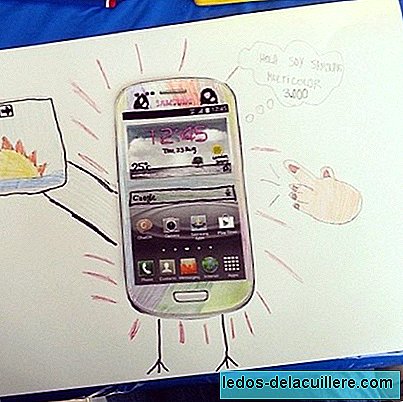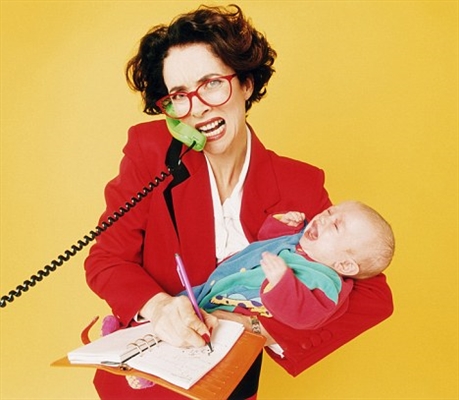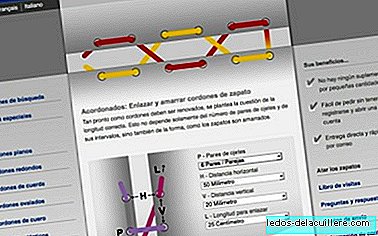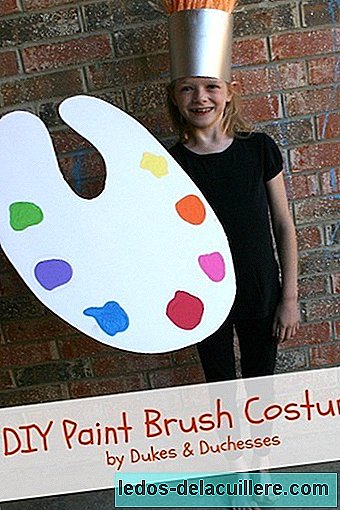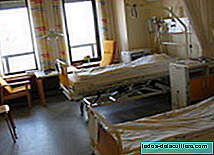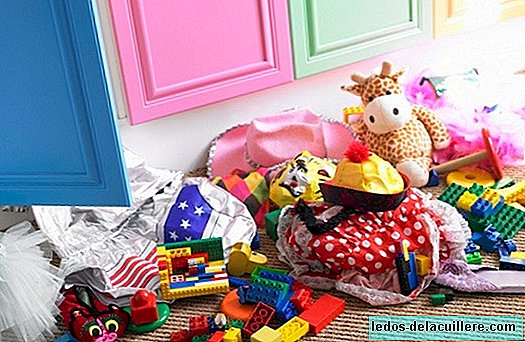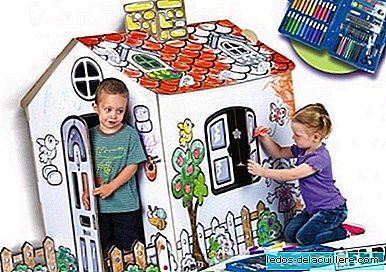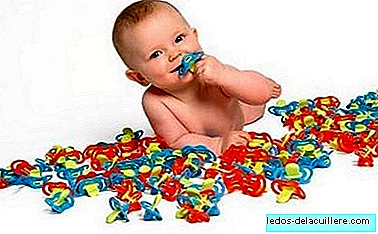
I think it is a practice that I have not used many times, either because we have always lifted "spare" pacifiers, or because it gives me enough apprehension to suck something that has just fallen to the ground. But it is very common to see parents cleaning the baby's pacifier by sucking it.
Is this practice good or bad? I am afraid that we will not have a unidirectional response, since despite a recent study that this practice can reduce the risk of asthma and rashes in the baby, on the other hand it increases other risks.
For example, tooth decay. Caries can be transmitted to the baby's mouth If we have those bacteria, adults. And it is that precisely one of the tips for not transmitting caries to the baby was precisely not to suck the pacifier to clean it.
But, in addition to caries, we could transmit contagious diseases to the baby if we are suffering from them (even without knowing it yet). Although it is also true that these diseases could be spread in many other ways, not only through the toy (kisses, coughs, hands ...).
But let's look at the other part of the question, which has been recently discovered. Why would it be beneficial to clean the baby's pacifier with his mouth?
Cleaning the pacifier with the mouth could protect the baby from allergies
The study, published by the journal "Pediatrics", is entitled "Pacifier Cleaning Practices and Risk of Allergy Development" and has been conducted by researchers from Gothenburg (Sweden).
The authors point out that it is possible that the transfer of microbes from parents' mouths to babies reinforces the bacterial diversity of the digestive system and the immunity of young children. Cleaning the pacifier with the mouth was associated with a 49% less chance of a child developing eczema.
The study authors followed up 184 babies especially prone to allergies (80% had at least one allergic parent) up to three years. When they were six months old, 65 parents "cleaned" their pacifiers with their mouths. Most parents also said they washed them with running water.
At 18 months of age, the team performed an allergy test. The children of parents who sucked the pacifier to clean it were 63% less likely to have eczema and 88% less likely to have asthma than the children of parents who opted for another form of pacifier cleaning.
Of course, this trend disappears at 36 months, when there are no differences between the groups in the risk of asthma. Anyway, would so many children still use the pacifier at 36 months? I imagine not, and I hope not, because pediatricians advise limiting the use of the pacifier until the year of life.
However, the authors point out that the results do not prove that the pacifier cleaning method protects children from asthma and eczema, there may be other factors involved and other explanations 8 although they will not find them on this occasion), so It is too early to recommend the technique to parents.
So, for now, cleaning the baby's pacifier by sucking it cannot be seen as a practice to recommend, since what is proven is the risk of caries transmission.


